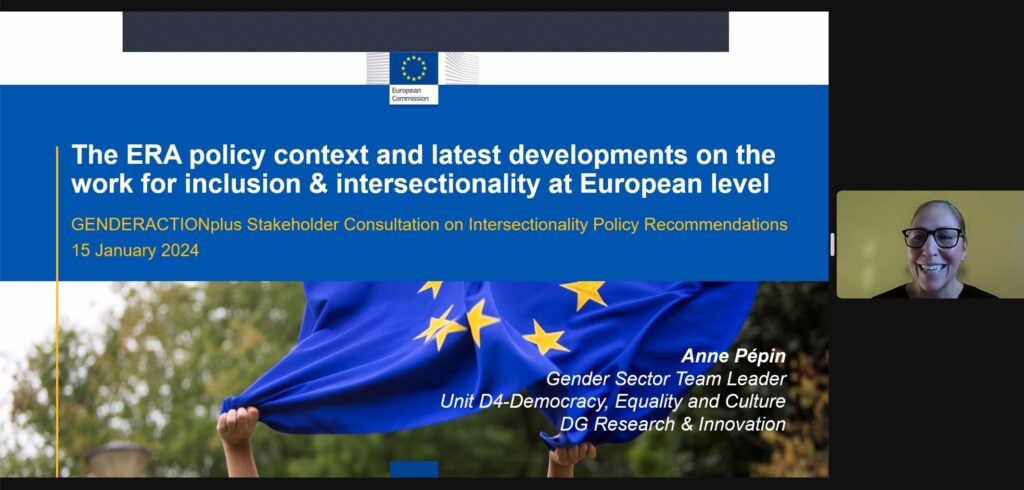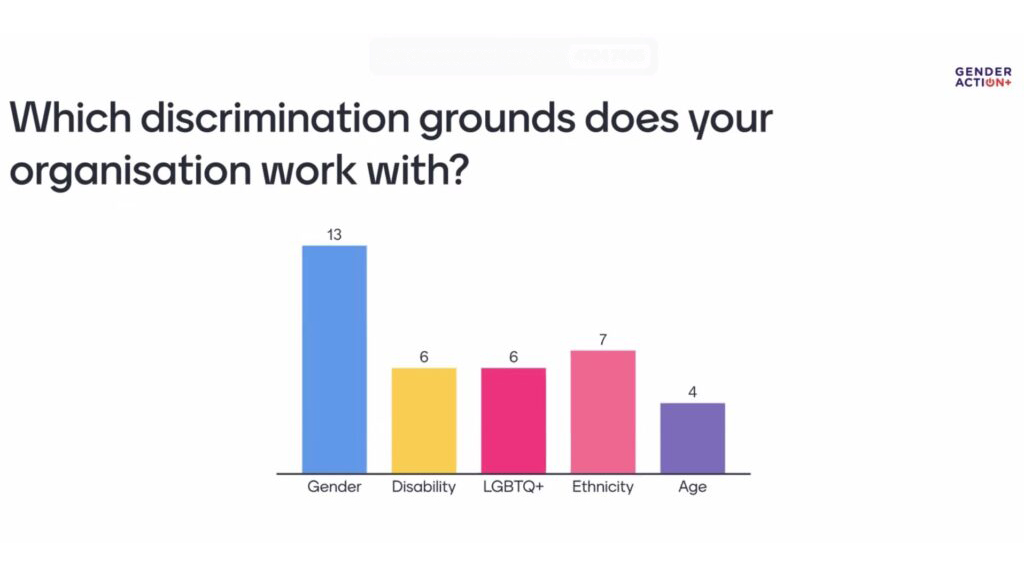On 15 January, the EU-funded GENDERACTIONplus project ran its third stakeholder engagement event. The purpose was to gather valuable input and feedback on recommendations aimed at lifting the focus on intersectionality and inclusion in European and national and RFO policies for higher education and research and innovation. The event was organised and moderated by VA (Public & Science Sweden) as part of its stakeholder engagement work in the project.

Participants in the online consultation included representatives of European and national organisations, such as national authorities, research funding bodies, and organisations representing researchers as well as marginalised groups (including disability, gender, LGBTQ+ and ethnicity). The engagement of a diverse range of stakeholders is crucial to ensuring that the recommendations can be implemented as widely as possible.

Developed by partners within the GENDERACTIONplus project, the policy recommendations highlight ways in which inclusion and intersectionality can be advanced at three levels – European, national (policy) and research funding organisations. The recommendations are informed by the results of a benchmarking survey carried out by GENDERACTIONplus during 2022/23. The survey investigated terminology, legislation, and policy on intersectionality in the European HE and R&I sector, revealing both obstacles and needs. The recommendations have also been informed by internal consultations meetings within the Consortium and through dialogue with external research in the field of equality and diversity.
The consultation event started with an introduction to the GENDERACTIONplus project by Marcela Linková, Project Coordinator and Head of the Centre for Gender and Science. She was followed by Heidi Holt Zachariassen and Ella Ghosh, Senior Advisers for the Committee for Gender Balance and Diversity in Research (KIF) situated at Universities Norway, who gave a presentation on the results of the GENDERACTIONplus benchmarking survey (report available on the GENDERACTIONplus website).
In addition, Anne Pépin, Gender Sector Team Leader within DG Research & Innovation at the European Commission, provided an overview of the ERA (European Research Area) policy context and latest developments regarding inclusion and intersectionality at European level. Amongst current initiatives highlighted, were the European Centre of Excellence on Inclusive Gender Equality in Research and Innovation, being established by the Inspire project, as well as the EU Award for Gender Equality Champions.
All participants then engaged in more in-depth discussions through small groups to provide specific feedback on the recommendations and discuss potential challenges to implementation.
Overall, participants welcomed the recommendations, viewing them as concrete, thorough and operational. A topic of particular discussion was data collection and the various challenges and differences in methodologies of collecting data amongst countries. There were also suggestions to create a pool of experts so that organisations had access to expertise within intersectionality and inclusion and to link this work even closer to the work on inclusive GEPs. The issue of resistance with regard to implementation was also highlighted by a number of participants, reinforcing the great contextual differences and challenges in working on gender equality and adding other equality dimensions.
Reflecting on the event, Heidi Holt Zachariassen commented “This stakeholder event was instrumental in enabling organisations and stakeholders outside the GENDERACTIONplus consortium to give their input and ensure that the recommendations were looked at and discussed from different angles. For us it was an important quality check to make sure that the recommendations are clear and relevant.”
Feedback on the event was very positive, indicating that participants had valued the opportunity to contribute and that they had found the event had helped to “foster the understanding of inclusive gender equality” and provide “a clearer view of what the most pressing problems are.”
Once feedback from the consultation has been reviewed and incorporated, a final version of the policy recommendations will be submitted to the European Commission at the end of January and available on the GENDERACTIONplus website shortly.
